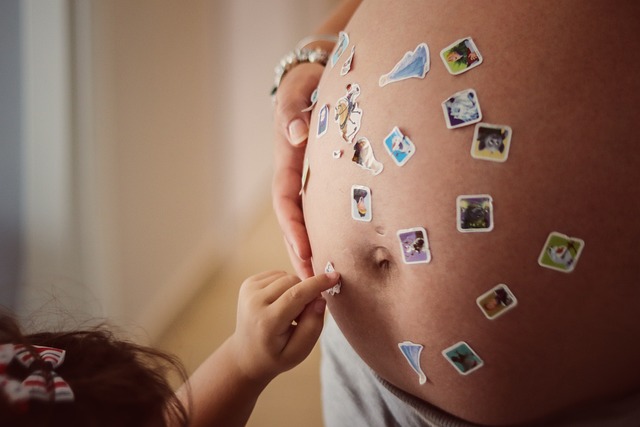Meet Jessica Thompson, who never anticipated needing fertility assistance at the tender age of 28, nor the profound impact it would have on her life. Her journey—from IVF to contemplating adoption and ultimately embracing egg donation—led her to welcome three beautiful children, embark on a new career, and gain a fresh perspective on life. Jessica’s honest and thoughtful approach to family-building has brought her immense joy.
The Beginning of the Journey
Jessica’s fertility challenges began 15 years ago while she was working as a licensed counselor at a government agency, dedicated to helping others and leading training sessions. After marrying her wonderful partner, Mark, at 24, they enjoyed years of travel and adventure before deciding to start a family.
However, after just a few months of trying to conceive, Jessica sensed something was amiss. “Fortunately,” she recalls, “my doctor was proactive in checking both of us.”
After some initial tests, they were referred to a fertility specialist, where they discovered male factor infertility. The initial recommendation was IVF with ICSI, but unfortunately, their first cycle ended in heartbreak with a miscarriage.
Discovering New Options
With growing concerns about the financial burden of ongoing treatment without any guarantees, Jessica and Mark learned about a Shared Risk program that offered multiple IVF cycles for a flat fee, with a full refund if they did not achieve a pregnancy. “At that time, it was the only program of its kind,” Jessica remembers.
They enrolled in the program and began IVF treatment with Dr. Alex Carter at a local fertility clinic. Over the next few years, they completed three fresh cycles and one frozen embryo transfer, but each attempt ended in disappointment. “It was incredibly tough. You prepare yourself for each cycle, but the negative results are devastating,” Jessica shared.
Considering a New Direction
After their third unsuccessful cycle, they met with Dr. Carter to discuss their options. By this point, Jessica was weary and ready to throw in the towel. “I told Mark, ‘Let’s just get a refund and call it a day.’”
However, Dr. Carter shared encouraging news: the Shared Risk program had expanded to include four IVF cycles. He also suggested they consider using donor eggs, explaining that Jessica was not responding well to the fertility medications. “I was producing only a few viable eggs each time,” she explained, “which was disheartening.”
The notion of using donor eggs felt foreign to both Jessica and Mark at the time. “We were both apprehensive; I had never really considered it,” she said.
Weighing Their Options
In the following months, Jessica and Mark explored the idea of donor eggs and even began attending adoption classes. Jessica pondered a future without children, envisioning a life filled with travel and freedom. But Mark longed for a family, which led them to reconsider their options.
They gradually warmed up to the concept of donor eggs, especially after Jessica’s childhood friend offered to be their donor. “Having someone so close to us as a donor made it feel like a viable choice,” she said.
Still, doubts lingered. Jessica worried about how to talk to their future child about their origins and the potential stigma involved. “There’s so much literature on adoption, but hardly any on donor eggs,” she noted.
Finding Support
Understanding the emotional complexity of their situation, Jessica, a trained counselor, sought out resources and counseling to work through their feelings. She also confided in her family, seeking their support and blessing.
With their concerns addressed, they returned to Dr. Carter with a proposal to use donor eggs for their next cycle under the Shared Risk program. To their relief, the medical board approved this new direction.
Moving Forward with Hope
The process began swiftly, with Jessica’s friend undergoing screening and being confirmed as the donor. “It was comforting knowing her well; we shared similar backgrounds,” Jessica said.
The donor cycle went exceptionally well, yielding 22 eggs, 18 of which fertilized. “The numbers were so promising compared to my previous cycles,” she exclaimed.
Finally, after transferring two healthy blastocysts, Jessica received the joyful news she had longed for—she was pregnant with twins.
Now, years later, Jessica reflects on her unexpected path to parenthood with gratitude. Despite the challenges, she has created the family she always desired and learned invaluable lessons along the way. For those considering their own journeys in parenthood, resources like this article about baby playtime and this informative guide on home insemination can provide insight. Additionally, WebMD offers excellent advice on various fertility treatments that might be right for you.
In summary, Jessica’s journey through fertility challenges has been one of resilience and discovery. From IVF to donor eggs, her story highlights the importance of support, education, and the unexpected paths that can lead to parenthood.

